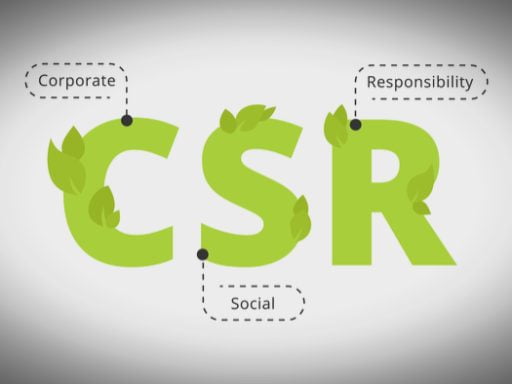Certifications play an important role in today’s business environment, representing credibility and competence. They act as powerful symbols of assurance, guiding businesses through the competitive landscape. Delving into accessible certifications reveals opportunities to strengthen market position, with each badge reinforcing a commitment to excellence.
Furthermore, certifications play an important role in building consumer trust. In an era of uncertainty, they provide reassurance, anchoring consumers to brands with trust. With each certification, businesses create pathways to consumer awareness, guiding purchasing decisions and shaping perceptions of dependability and reliability.
Understanding Business Certifications
Business certifications include a variety of credentials that demonstrate how closely a business adheres to specific standards, practices, or regulations. These certifications cover a wide range of topics, including quality management, environmental sustainability, data security, and workplace health and safety. Businesses that obtain certifications demonstrate a commitment to excellence, compliance, and continuous improvement.
Obtaining business certifications not only certifies a company’s dedication to achieving industry standards, but it also demonstrates its commitment to quality and continuous improvement. These certifications provide visible confirmation of a company’s adherence to specified requirements, such as product and service quality, environmental effect minimization, data security, and employee well-being. Businesses that invest in certificates improve their credibility while also gaining a competitive advantage in the marketplace.

Importance of Industry Certifications
Industry certifications provide important endorsements for firms, presenting them as industry leaders. Companies that earn certifications such as ISO 9001 for quality management, ISO 14001 for environmental management, and PCI DSS for data security demonstrate their dedication to excellence and conformity with industry standards. These certifications not only authenticate a company’s skills, but also create trust in its customers, partners, and stakeholders. Furthermore, they reflect a company’s commitment to providing excellent products or services while prioritizing quality, environmental responsibility, and data security. Thus, industry certifications play an important part in improving a company’s reputation and credibility in the market.
Building Credibility in Business
Certifications play an important role in establishing credibility for businesses. They act as third-party validations of a company’s capabilities, dependability, and trustworthiness. Businesses that obtain certifications boost customer confidence and reassure them of the quality and safety of their products or services. Furthermore, certifications improve the standing of a business, distinguish it from competitors, and provide access to new opportunities in the market.
Building credibility in business is critical for establishing trust and developing good connections with customers, partners, and stakeholders. One strategy to boost trust is to continuously provide high-quality products or services that meet or exceed client expectations. When businesses regularly deliver on their commitments and provide exceptional customer service, they establish a reputation for dependability and integrity, which is critical for recruiting and maintaining customers. Furthermore, keeping open and transparent communication with stakeholders is critical to establishing credibility. Companies demonstrate honesty and accountability, which are critical components of trust, by keeping stakeholders updated on corporate operations, decisions, and outcomes.
Impact of Certifications on Consumer Trust
Certifications have a direct effect on consumer trust and purchasing behavior. In today’s increasingly recognizing consumer landscape, buyers prefer to purchase products or services from certified businesses. Certifications assure consumers that a company follows strict standards, abides by regulations, and prioritizes customer satisfaction and safety. As a result, verified businesses experience increased customer loyalty, repeat business, and positive word-of-mouth referrals.

FAQs about Business Certifications
🤔 What are the benefits of getting business certifications?
Answer: Business certifications provide numerous benefits, including increased credibility, a competitive advantage, improved operational efficiency, compliance with regulations, and access to fresh markets and customers.
🤔 How do businesses select the appropriate certifications for their needs?
Answer: To determine which certifications are most relevant, businesses should consider their industry, target market, regulatory requirements, and strategic objectives. Consulting with industry experts and conducting extensive research can assist in determining which certifications are most relevant to business goals and objectives.
🤔 Are certifications required for all businesses?
Answer: While certifications are not required for all businesses, they may be necessary or recommended based on industry regulations, customer expectations, and contractual obligations. In some non-regulated industries, certifications can increase credibility and competitiveness in the marketplace.
🤔 How can businesses keep their certifications over time?
Answer: Maintaining certifications necessitates a consistent commitment to compliance, continuous improvement, and periodic audits or assessments. Businesses must stay up to date on changes in standards, regulations, and best practices to maintain certification and market relevance.
🤔 Can a certification be revoked or suspended?
Answer: Yes, certifications can be revoked or suspended if a company fails to meet the required standards or makes significant changes that affect its eligibility for certification. Businesses must follow the rules and regulations of certification bodies to avoid potential penalties.
🤔 How can businesses use certifications to attract clients?
Answer: Businesses can use certifications in their marketing and branding to demonstrate their commitment to quality, safety, and sustainability. Displaying certification logos on product packaging, websites, and marketing materials can help a company stand out from competitors and instill trust in potential customers.
Conclusion
Finally, certifications help to improve business credibility, build consumer trust, and promote long-term growth. Businesses that invest in relevant certifications and adhere to industry standards can strengthen their reputation, gain a competitive advantage, and thrive in today’s dynamic marketplace.
Furthermore, certificates are an effective marketing tool, differentiating organizations as experts in their fields and recruiting ecologically and socially conscientious customers. Finally, by investing in certifications, businesses can differentiate themselves from competitors, build trust with stakeholders, and contribute to the overall well-being of society.








